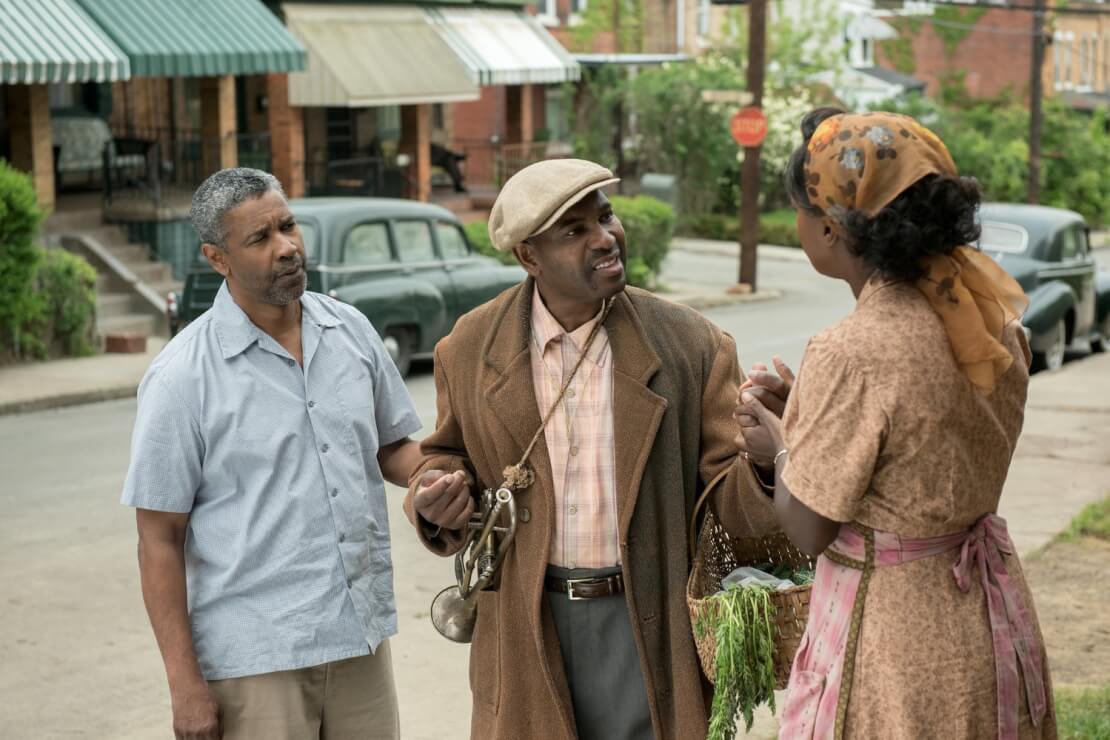Fences
‘Fences’ is a story that about the familial ties that bind, in this case those wrapped around the polarising figure of Troy Maxxon played by the film’s director, Denzel Washington. Within barb-laden exchanges Troy’s life is laid bare in both how he sees it and later how it actually is. The shadows of his past that make up his hopes and dreams delight and yet suffocate those closest to him in this unflinching portrayal of 1950’s America.
Like the baseball that hangs from the backyard tree, ‘Fences’ twists in the breeze like an ever present reminder…
Based on the Pulitzer Prize winning play of the same name by August Wilson, ‘Fences’ knowingly concedes some of its stage play origins. Whilst it is not a visual tour de force, the production value is very high, the score unobtrusive and the confined location only serves to reinforce the density of the each characters’ lives and their limited choices. There is no escape from the opinions and actions of Washington’s central character and nor should there be. And in this regard ‘Fences’ is a veritable cinematic event. Like Troy Maxxon himself, it requires your undivided attention, it demands your undivided attention and it warrants your respect. Troy is as uncompromising as Washington’s performance is tender and he wrings-out all of Maxxon’s flaws in a persuasive mixture of charm and bellicose regret. As Rose, Maxxon’s weary wife, Viola Davis also excels in a role and performance that is every bit as equal as Washington’s with just as much to say and which provides a telling counter point to her husband’s habitual volume. Right through the entire cast there are great acting performances to be found and it’s for this reason that ’Fences’s’ 139 minutes never drag.
Like the baseball that hangs from the backyard tree, ‘Fences’ twists in the breeze like an ever present reminder. It reminds you how great acting can be affecting, how sub-text can underscore a character and how stage plays can, on occasion, make for great, absorbing cinema.
Mark Esper













